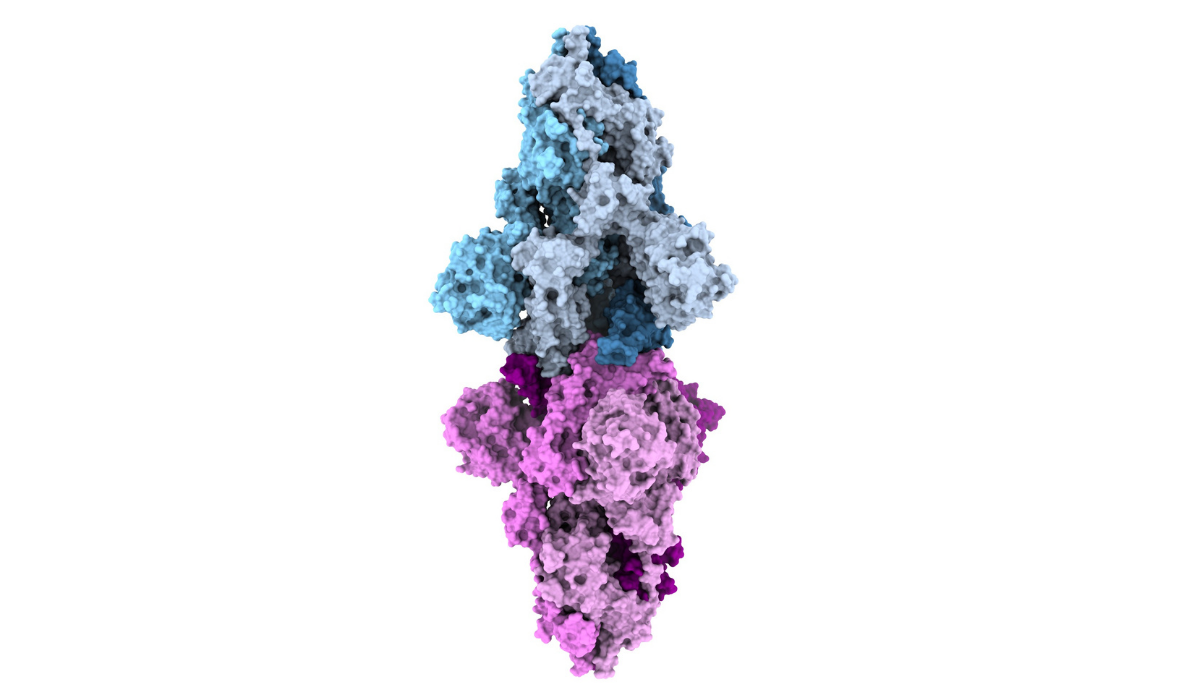
Two Kappa variant spike proteins joined in a head-to-head dimer – a characteristic not yet seen in any other SARS-CoV-2 variant.
Researchers at the University of British Columbia are shedding new light on the molecular factors that give COVID-19 variants a competitive edge — essential knowledge that could improve disease management as new variants continue to emerge.
The study, published in Nature Communications, examines the structural and biochemical properties of the Kappa and Delta variants, which co-emerged in India in late 2020. The findings explain how the Delta variant may have been able to beat out the Kappa variant and become dominant across the globe.

Dr. Sriram Subramaniam
“We are at a point in the pandemic where new variants continue to emerge and compete with each other. It’s very much survival of the fittest,” said senior author Dr. Sriram Subramaniam, professor in UBC’s faculty of medicine. “Understanding the factors that underpin the ‘fitness’ of each variant will allow us to respond more effectively to emerging threats and better target treatments.”
For the study, the researchers used cryo-electron microscopy (cryo-EM) to examine the atomic-level structure of the Delta and Kappa viral spike proteins, as well as biochemical studies to assess how strongly the spike protein binds with the ACE2 receptor on human cells.
“The spike protein extends from the surface of the virus and binds with the ACE2 receptor in order to infect human cells, like a key being inserted into a lock,” explains Dr. Subramaniam.
The researchers found that both variants display evasion from antibodies that target a specific part of the spike protein, known as the N-terminal domain. However, when compared to the Kappa variant and wild-type COVID-19, the Delta variant spike protein was shown to create stronger bonds with the human ACE2 receptor.
“The combination of increased antibody escape and enhanced ACE2 binding provides an explanation, in part, for the rapid global dominance of the Delta variant,” said Dr. Subramaniam.
“We are at a point in the pandemic where new variants continue to emerge and compete with each other. It’s very much survival of the fittest.”
Dr. Sriram Subramaniam
Notably, the Kappa variant spike protein displayed an unusual property, where two Kappa spike proteins were able to join together in what’s known as a “stacked head-to-head dimer” – a structure not yet seen in any other COVID-19 variant. The researchers say it is not clear if this unexpected feature was one of the molecular factors that led to Kappa being outcompeted by the Delta variant.
“There is much that we still don’t understand about the subtle molecular features that determine the overall fitness of these variants,” said Dr. Subramaniam.
In a previous study published in Science, Dr. Subramaniam and his team used cryo-EM to perform a structural analysis of the Omicron variant. The findings revealed that Omicron has similar ACE2 binding affinity to Delta, but with an increased ability to evade neutralization by antibodies.